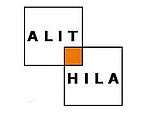Comparative literature at the University of Lille
Teacher profiles
Comparative literature in Lille is taught by a team of six incumbents (two professors, four lecturers) sometimes reinforced by individual teachers ("lecturers" with a main job outside the university) or beneficiaries ( usually in thesis).
Like all disciplines taught at the university, the general and comparative literature depends on the National Council of Universities. The comparatists are gathered under the 10th section of the CNU entitled "General and Comparative Literature".
Most of the teachers, and in particular the entire comparative literature team, are made up of research professors, that is to say, their working time is divided between the courses they teach. university (the preparations, the time of presence in front of the students, the corrections of the copies), the administrative burdens (responsibility of year or formation, participation in the councils which ensure the functioning of the university ...) and research.
Research in general and comparative literature
Unless you are well advanced in university studies, it is often difficult to imagine the reality of research in literature, the most common representations relate indeed much more to the laboratories of physics or biology. Literature researchers are nevertheless scientists, their objects are texts and their laboratories, libraries.
Comparative to researchers in French literature, the comparatists consider that the literary fact knows no predetermined limits, nor linguistic, nor geographical, nor generic, nor temporal. Most researchers in comparative literature work on sets of works that include several linguistic domains (German and French for example). The searches open moreover to different supports (the painting or the music and the literature for example) and to different centuries. The general idea is to show how this enlarged vision of the literary fact can better illuminate it.
What does the researcher look for in comparative literature?
The research topics are extremely diverse, especially in comparative literature. Several domains can be envisaged, whether it is the analysis of an aesthetic current that goes beyond linguistic or generic boundaries ("romanticism" for example), the identification of sources that make it possible to better understand a work, from the analysis of human relations to the prism of literary productions, the study of representations or repetitions of different corpora (myths for example).
The researcher in comparative literature therefore has a complex sub-specialization that is not always shared by other researchers and that crosses a linguistic sub-specialization (the languages he masters and that allow him to study the texts in the original language) and a theoretical sub specialization (the theoretical angle with which he analyzes his objects). This dual specialization makes it difficult to direct the teaching of its research to undergraduate students, which explains, for example, the massive use of works in French translation in the proposed corpora.
